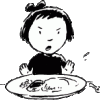-
Welcome to the eG Forums, a service of the eGullet Society for Culinary Arts & Letters. The Society is a 501(c)3 not-for-profit organization dedicated to the advancement of the culinary arts. These advertising-free forums are provided free of charge through donations from Society members. Anyone may read the forums, but to post you must create a free account.
Monsanto granted patent for chapati-flour grain
-
Similar Content
-
- 4 replies
- 103 views
-
- 35 replies
- 6,236 views
-
- 153 replies
- 21,568 views
-
- 2 replies
- 270 views
-
- 28 replies
- 938 views
-
-
Recently Browsing 0 members
- No registered users viewing this page.






Recommended Posts